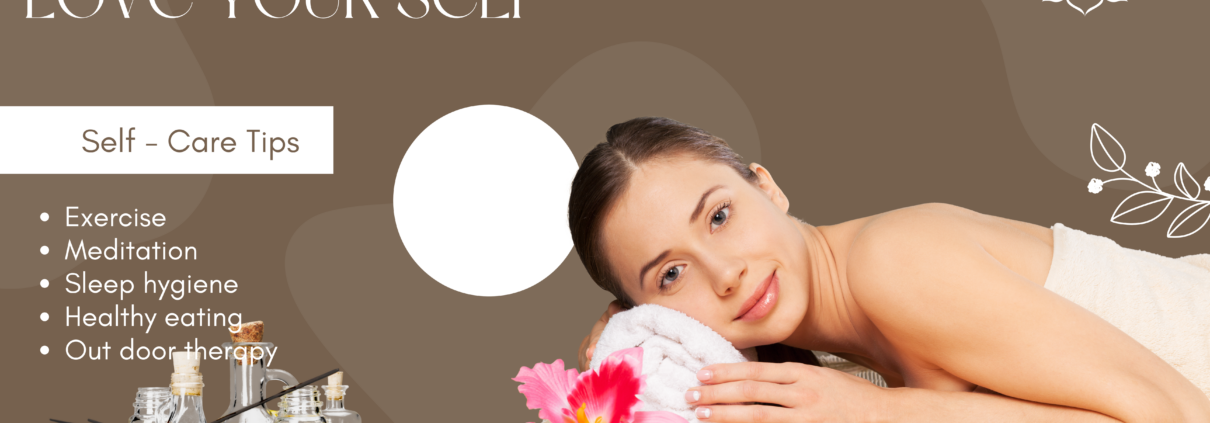Discover the Art of self-care : Essential Tips for a Happier You!
Get Moving: The Power of Exercise
Exercise is often touted as one of the most effective mood boosters available without a prescription. Numerous studies have found that physical activity releases endorphins, the body’s natural feel-good chemicals. This release not only helps reduce feelings of anxiety and depression, but it also enhances overall well-being. When you engage in exercise, even for a brief period, you can experience an immediate lift in your mood, making it a powerful tool for self-care.
Finding fun ways to get active can make all the difference. Instead of viewing exercise as a chore, consider activities that you genuinely enjoy. Dancing, hiking, or even playing a sport can provide not only a workout but also a chance to socialize. Group classes, such as yoga or spin, can offer a community feel, which can be motivating. Remember, the goal is to find something that excites you and feels less like an obligation.
Mindfulness and Meditation: Finding Your Zen
Mindfulness and meditation practices have gained considerable attention for their benefits on mental health. The science behind mindfulness shows that it helps reduce stress, anxiety, and even physical pain. By focusing on the present moment, mindfulness encourages a state of awareness that promotes emotional balance. Studies indicate that regular meditation can alter the brain’s structure to enhance emotional regulation, leading to improved mood and resilience.
For those new to mindfulness, there are simple techniques to try. Start with just five minutes of focused breathing each day. Gradually increase the duration and explore different practices, such as guided meditations or body scans. Apps like Headspace or Calm can provide structured sessions to help you stay committed. Integrating mindfulness into your daily routine can be transformative, improving not just your mood but your overall quality of life.
Journaling: Writing Your Way to Happiness
Journaling is a powerful self-care practice that allows individuals to process emotions and thoughts. The benefits of putting pen to paper include enhanced clarity, emotional release, and improved mental health. Research shows that expressive writing can lead to significant reductions in stress and depressive symptoms. It’s a safe space for reflection where you can explore your feelings without judgment.
If you’re unsure where to start, consider some journaling prompts to get you going. Questions like “What made me smile today?” or “What challenges did I face, and how did I overcome them?” can help open the floodgates of thought. Regular journaling can serve as a valuable tool for tracking your mood, recognizing patterns, and celebrating progress over time.
Nature Therapy: Get Outside!
Spending time outdoors has profound effects on mental health. The benefits of fresh air and green spaces are well-documented; exposure to nature can lower cortisol levels, reduce feelings of stress, and enhance overall mood. Nature therapy, or ecotherapy, is based on the idea that nature can be a healing environment. Even a short walk in the park can improve mood and increase feelings of well-being.
Connecting with nature doesn’t have to be elaborate. Start small by taking a stroll in your neighbourhood or sitting outside with a book. If you have access to a local park or botanical garden, spend time there. Gardening is another excellent option; it combines physical activity with the calming effects of nurturing plants. Prioritizing outdoor time can be an effective way to recharge and improve your mood.
Sleep Hygiene: The Importance of Rest
Sleep hygiene plays a crucial role in mental health and overall mood. The relationship between sleep and mood is complex; insufficient sleep can exacerbate feelings of anxiety and depression. Quality sleep helps regulate mood, enhance cognitive function, and improve emotional resilience. Understanding how to create a sleep-friendly environment can make all the difference.
To improve your night’s sleep, consider establishing a bedtime routine. Practices such as dimming the lights an hour before bed, avoiding screens, and engaging in relaxing activities like reading or meditation can signal to your body that it’s time to wind down. Additionally, maintaining a consistent sleep schedule will help your body regulate its internal clock, leading to better quality rest and improved mood during the day.
Healthy Eating: Fuel Your Body and Mind
What we eat can greatly influence our mental health. Nutritional psychiatry highlights the connection between diet and mood, emphasizing that a balanced diet can enhance emotional well-being. Foods high in omega-3 fatty acids, complex carbohydrates, and vitamins are known to boost mood. A diet rich in fruits, vegetables, whole grains, and lean proteins can lead to better mental health outcomes.
To start eating healthily, you can incorporate foods that boost your mood into your meals. For instance, consider oatmeal topped with berries for breakfast, a hearty salad with avocados for lunch, and grilled salmon with quinoa for dinner. Meal prep can simplify this process, ensuring you have nutritious options readily available. Small changes in your diet can have significant impacts on your mood and energy levels.
Social Connections: The Power of Community
Human beings are inherently social creatures, and the need for connection is fundamental. Research shows that strong social ties can enhance mood and well-being, while isolation can have the opposite effect. Maintaining relationships and fostering a sense of community can provide emotional support, decrease feelings of loneliness, and improve your overall outlook on life.
Strengthening social ties can be as simple as reaching out to friends or family members for a chat. Consider joining clubs or groups that align with your interests, whether that’s a book club, sports team, or hobby group. Volunteering can also provide a sense of community while allowing you to give back. The key is to find ways to engage with others regularly, which can significantly enhance your mood and sense of belonging.
Creative Outlets: Express Yourself!
Engaging in creative activities can be a powerful tool for improving mental health. The link between creativity and well-being is well-established; creative pursuits allow for emotional expression and can serve as an outlet for stress. Whether it’s painting, writing, or playing music, creativity fosters a sense of accomplishment and joy that can lift your spirits.
Finding a creative outlet that speaks to you can enhance your self-care routine. Consider trying different activities to discover what you love. Perhaps you’ll enjoy painting landscapes, savoring the process of crafting, or even taking up photography. The important part is to allow yourself the freedom to experiment and express your feelings. Creativity can be a joyful escape from everyday pressures and a means of connecting with your inner self.
Digital Detox: Time to Unplug
In today’s hyper-connected world, taking a break from screens can do wonders for your mental health. How screens affect your mood has been a topic of increasing research, revealing that excessive screen time can lead to increased feelings of anxiety and depression. A digital detox allows you to step back and re-evaluate your relationship with technology, helping to reduce stress and improve mood.
To start a digital detox, set boundaries for your tech use. Allocate specific times for checking emails or social media, and consider designating tech-free hours in your day, especially before bed. Engage in offline activities, such as reading, cooking, or spending time outdoors. Finding a balance between online and offline life can significantly enhance your mood and overall well-being.
Acts of Kindness: Give Back to Feel Good
Engaging in acts of kindness not only benefits others but can also enhance your own mood. The joy of helping others is backed by research, showing that altruistic behaviours can lead to increased happiness and decreased feelings of stress. Performing small acts of kindness, whether it’s helping a neighbour or volunteering for a local charity, can create a sense of fulfilment and connection.
Easy ways to spread kindness include leaving encouraging notes for strangers, donating to a good cause, or simply checking in on a friend. These small gestures can create ripples of positivity in both your life and the lives of others. By making kindness a part of your daily routine, you can foster a sense of community and improve your overall mood.
Conclusion
Self-care is not just a trend; it’s a crucial part of maintaining mental health and emotional well-being. By integrating these ten research-backed practices into your life, you can boost your mood and enhance your overall quality of life. From exercising and journaling to nurturing social connections and embracing creativity, each practice offers unique benefits.
FAQs
1. What is self-care?
Self-care refers to activities and practices that individuals engage in to take care of their physical, mental, and emotional health. It includes a wide range of activities, from exercise and healthy eating to mindfulness and creativity.
2. How can exercise improve my mood?
Exercise releases endorphins, which are chemicals in the brain that act as natural painkillers and mood elevators. Regular physical activity can significantly reduce feelings of anxiety and depression.
3. What are some simple mindfulness techniques I can try?
Simple techniques include focused breathing, body scans, and guided meditations. You can start with just a few minutes each day and gradually increase the duration.
4. Why is sleep hygiene important?
Good sleep hygiene ensures quality rest, which is essential for mood regulation, cognitive function, and emotional resilience. Establishing a routine and creating a sleep-friendly environment are key components.
5. How can I stay connected with friends and family?
Regularly reach out through calls, texts, or social media. Consider setting up regular meet-ups or joining community activities to strengthen your social ties.






















Leave a Reply
Want to join the discussion?Feel free to contribute!